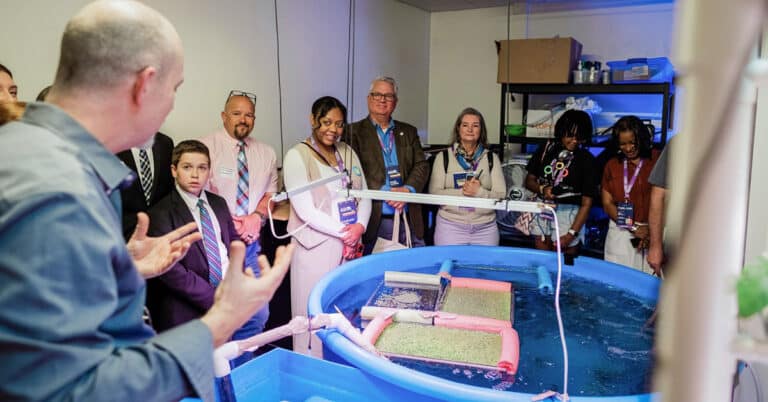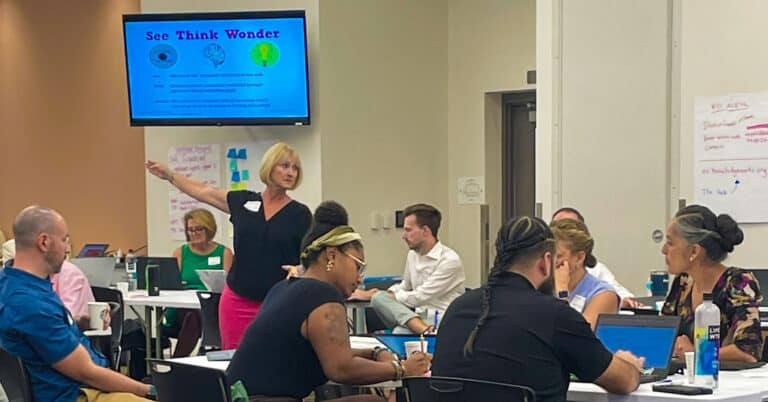What if you allowed your emotions to be messy and complicated and multilayered? Instead of pressuring yourself to only have the right reactions, the perfect processing, the most efficient timeline for getting over it? – artist Yumi Sakugawa
Sometimes thinking about what we want for the future can help us make sense of the past. One of the core strategies for realizing the vision of human-centered learning that KnowledgeWorks has suggested is to “prioritize relational competencies as essential skills.” This strategy outlines the importance of:
social-emotional skills, racial literacy and cultural navigation skills that help people understand one another and communicate and interact effectively across cultural boundaries. Together, relational competencies form a foundation of critical cognitive and metacognitive skills that are essential for developing inclusive leadership, creating schools and learning communities that foster love and belonging, and helping learners cultivate a resilient learning practice.
When I was a teacher, I believed strongly in supporting my students’ social-emotional health and building their skills in navigating feelings and relationships. However, I carried an unspoken belief that I could do all of that “right.”
“Relational competencies” sound like something that can be perfected and mastered. Some part of me believed that, if I thought about them in the right way or said the exact right thing, I could support my students in becoming who they could and wanted to become, engineering any difficulty out of the process. But it’s messy and vulnerable to forge true connections and to learn about ourselves; once we try to do those things perfectly, we are already moving further from the goal. Ironically, “competence” in this area requires letting go of the need for precision and clarity and embracing discomfort and uncertainty.
When I think about how I might have approached prioritizing my own and my students’ relational competencies differently, a few questions that I could have asked myself come to mind.
- Where do I prioritize control over care? Am I letting my desire for certainty and order get in the way of me or my students being able to connect or be honest?
- What kind of classroom culture will allow us to be human beings together and to have time and space to really know one another?
- How can I ensure that my students are safe, are treated with respect and can ask for what they need? What scaffolds do I need to put in place for young people learning how to navigate relationships? How will we handle it when we cause harm to one another?
- How do I model honesty and vulnerability with my students while setting and maintaining boundaries?
These questions clearly do not have easy answers, and the ways we approach them will shift over time. But we can use them as reminders of the elusive truth that human-centered learning and relational competencies are not destinations to reach but rather ever-evolving explorations. We will grow and learn imperfectly, and that’s how we’ll know we are on our way.
Download Envisioning Human-Centered Learning Systems to learn other strategies for help make your vision a reality.







